Be prepared because “boys will be boys” and bigots will be bigots
For all the years we spend being raised and instructed by our parents, girls hear things like “don’t let anyone handle your drink at a party,” “don’t wear that, boys might get the wrong idea,” “always go to the bathroom in a group,” “never walk alone at night,” or the one I hear the most from my own mother: “you need pepper spray.” I doubt that boys typically hear these things from their parents because most of them have nothing to fear in the ways of assault or kidnapping.
There was one time that I was walking to school to pick something up for a class and I noticed this man on the other side of the street wearing a long coat with a hat that covered his face and a camera at his side. He took the same turn as me and I, not wanting to make him aware that I knew of his existence, kept walking at the same pace, only occasionally looking back to see if he was still behind me. I was halfway up the hill when I dialed the 9 and two 1’s ready to hit call if I needed to. As I got further up the hill, I saw two teens up ahead and I started walking faster, trying to get as close to them as possible without being weird. The next time I looked back, the man was gone, and all I could think about when I was walking back down that hill to my apartment was that he could be hiding in the bushes waiting for the right moment to strike.
Women have to be overly cautious for their own safety in day to day life, whether it be daylight or nighttime, it doesn’t matter. A Catamount survey revealed that many other girls hold their keys in their hands, or carry mace and a taser with them at all times. Aniston Mctyre (‘22) said that most of what she does for her own safety is wholly unconscious at this point, “Now because I’m used to doing it, I’ll hold my keys in between my fingers, especially when I’m leaving someone’s house or walking somewhere in the dark.” She explained that while she doesn’t feel the need to look under her car before getting in like some girls because her car sits low to the ground, she’s “way more on alert.” Society seems to have a huge effect on the way women are treated and how they are the ones responsible for their own safety.
“When you’re young, at least for me, I always heard in school the whole ‘boys will be boys’ thing. […] Which is stupid and doesn’t make sense because that’s teaching your sons to not ask for consent to do anything, and it teaches girls to feel like they can’t stand up for themselves […] and that they should be flattered, even if they don’t want to,” Mctyre went on. These pressures root in hard patriarchal society and have been perpetuated for years. “I travel a lot and society says ‘you present femininely and people could kidnap you and be prepared,’” Kiersten Dekay (‘23) explained.
Choir director, Taylor Iverson and I spoke further on this topic and society’s pressures on safety for women may affect other groups of people as well. Ms. Iverson explained that she was lucky enough during high school and college to be in small communities where she never really felt unsafe but she always worries about her POC and BIPOC friends, “it’s insane what they have to deal with in their lives.” She explained that with all of the Asian hate crimes that her Filipino friend “feels really unsafe on the internet” and that he even “feels attacked often.” Personally, I think anyone who is a part of the LGBTQ+ community or who may be suspected of being a part of the community when out in public probably feels similarly as well. In an article The Washington Post published in 2018 that talked about a survey of LGBTQ+ youths, out of 12,000 responses of kids ages 13 to 17, ¾ reported being verbally threatened because of their sexuality and I’m sure many LGBTQ+ haven’t felt confident enough to open up and come out of the closet because of their safety concerns.
Schools and families need to find ways to touch on these subjects starting young; parents can ask permission to hug or touch their child once they’re old enough to do so, and elementary schools can have books with deeper meanings and lessons about consent and bullying and diversity. High schools could implement self defense units in gym classes and have seminars, English teachers typically choose books that have may have something to do with race and slavery but what about books written by people of color, or books with LGBTQ+ main characters, books about abuse and sexual assault. All of these can bring awareness to issues about different communities that feel unsafe.
However, it shouldn’t just be left up to administrative personnel and guardians, because we can’t expect them to do these things if they haven’t already; people can take a stand. In a situation where you feel like you can speak out and let someone know “hey, that’s not okay,” or “that makes me feel unsafe,” do so. If people aren’t made aware of how they affect others with their actions, they’ll never learn. If we don’t stand together and support each other no matter our differences, our gender, our sexual identity, our religion, our race, right now, then the world will never learn. In the words of Dekay, “educate yourself and ask about people’s experiences, and don’t feel ashamed to ask either; just be better.”


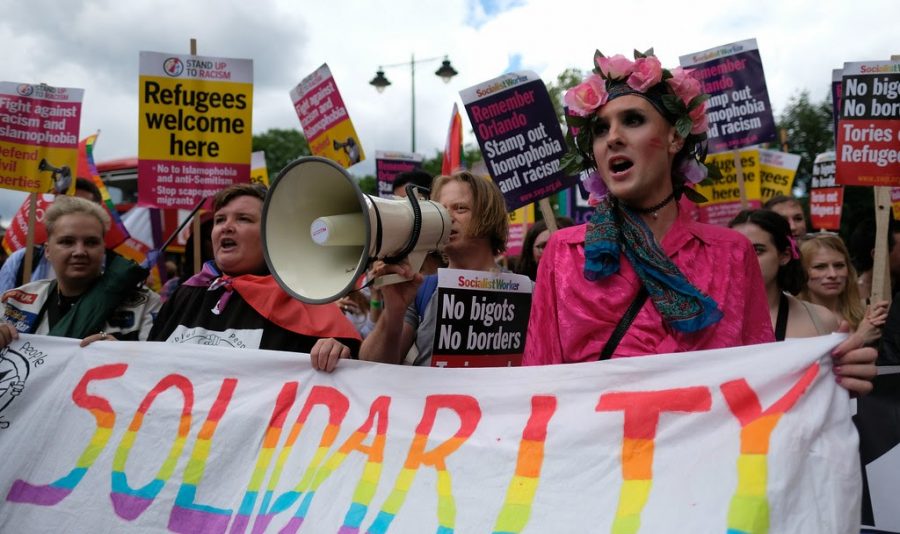

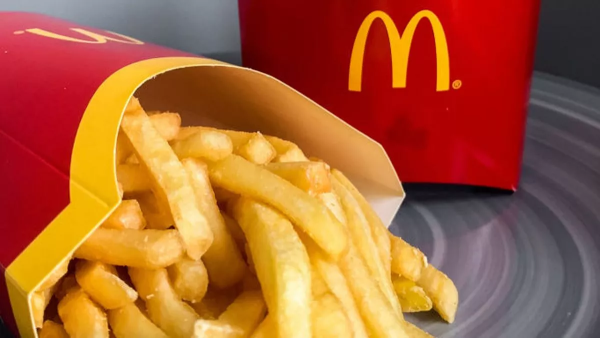

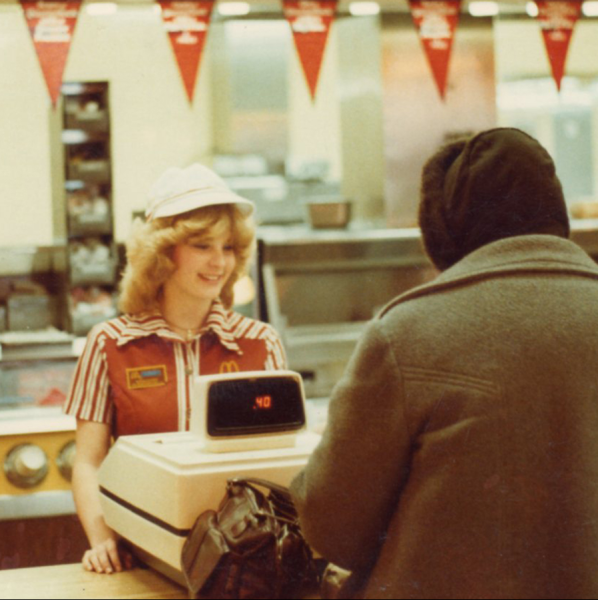

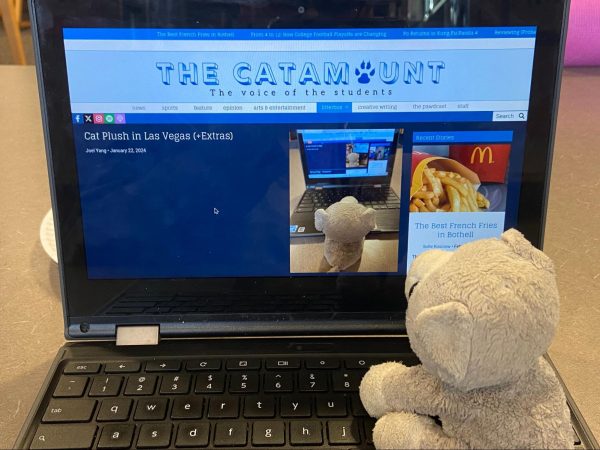
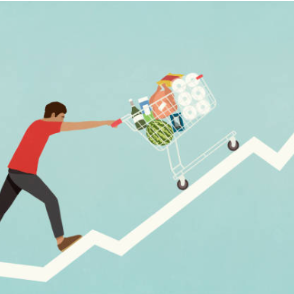


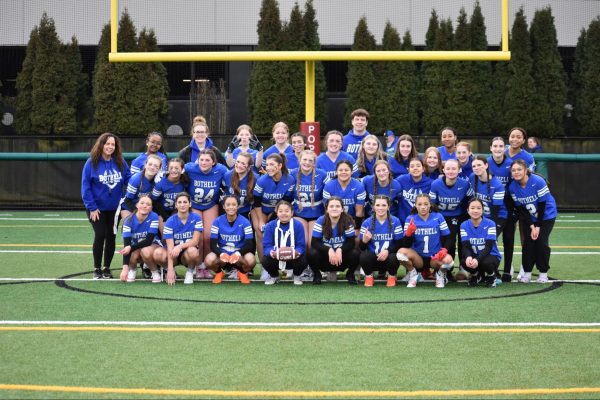



wendy wands • May 24, 2021 at 1:44 pm
Your last paragraph of this opinion piece summed up why I continue to Advise our Climate and Culture Committee. To welcome EVERYONE and to give one another a voice and the tools to learn to listen. Having tough conversations and being respectful to one another’s voice is so important. We need to know what is going on. We do live in a patriarchal society. Just recently, Amazon was called out on mostly white older men on the Board of Directors, few people of color, few women, few of different nationalities, but alas, they then clumped all management workers together and the stats became different, but wait….nothing at the top changed!! It is appalling that any human being should feel belittled, bullied, afraid or shamed for who they are. The Asian hatred it sickening, and of late, I as a Jewish woman has learned that now Jewish people are being targeted because of the Israel/Palestine conflict! Recently in the news a Senator from MO revealed that at 18 he impregnated a 14 year old (and yes, this WOULD be considered rape), he said it was like a Romeo and Juliet story, at 20 this young woman killed herself and this Senator is estranged from his son. This news made me sick to my stomach, and once again, a story from someone who feels domination over females and that his story is like a love story, only so that he can be forgiven for what he did in his past. We females carry the torch and we need to feel empowered with our energy and drive.